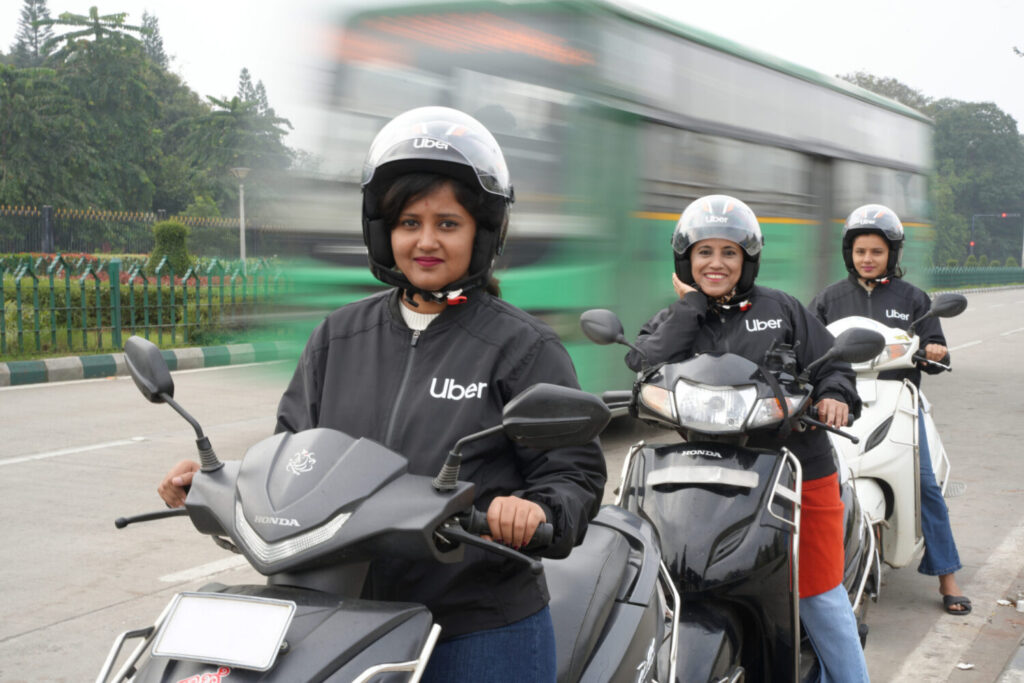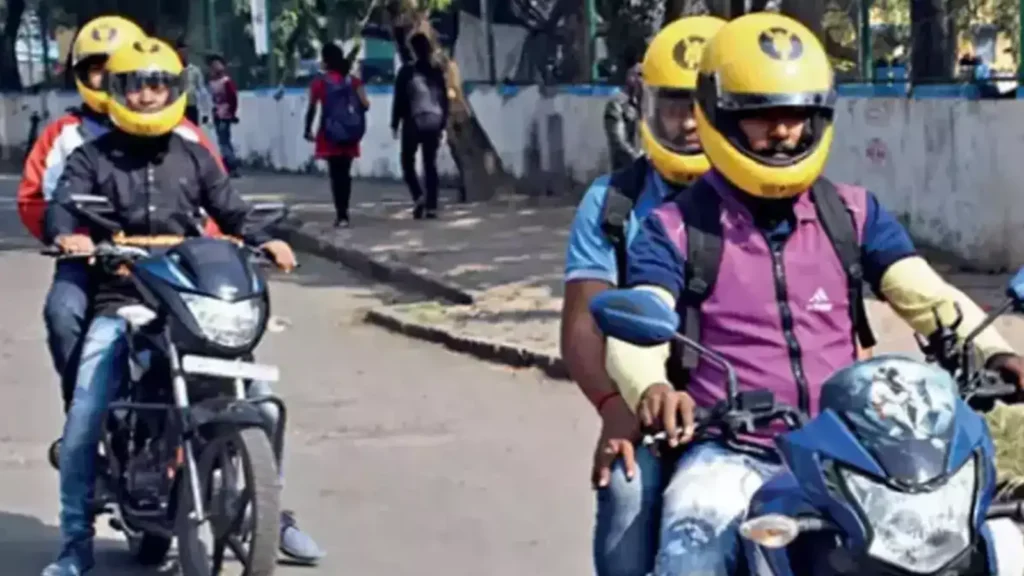
By [Technocrat Magazine Staff], August 21, 2025
Bengaluru, August 21, 2025
Bike taxis are back on Bengaluru’s chaotic roads, with Uber and Rapido resuming services early Thursday morning and Ola following later in the day, defying a two-month ban.
The Karnataka High Court’s recent oral directive sparked the revival, but Transport Minister Ramalinga Reddy insists, “The court didn’t permit resumption.” As commuters cheer and gig workers breathe relief, this urban mobility saga is far from over. What’s driving this comeback, and can it last?

A Swift Return Amid Legal Limbo
On June 16, 2025, Bengaluru’s bike taxi ecosystem ground to a halt when the Karnataka High Court banned operations, citing the lack of a regulatory framework under the Motor Vehicles Act.
The decision left 6.5 lakh riders jobless and commuters grappling with auto fares that surged by up to 25%, with some paying Rs 250–300 for short trips. Traffic congestion worsened by 18% within a week, per reports, turning Bengaluru’s roads into a commuter’s nightmare.
Fast forward to August 21, 2025: Uber and Rapido restarted bike taxi services at dawn, with Ola joining by afternoon.
The catalyst?
A Karnataka High Court division bench, led by Chief Justice Vibhu Bakhru and Justice C.M. Joshi, orally instructed the State Advocate General to refrain from “precipitative or coercive action” against bike taxi drivers while hearing appeals from aggregators. The court called the ban “legally untenable,” arguing that bike taxis are a legitimate business and that the state’s blanket prohibition infringes on livelihoods.

Yet, Minister Reddy remains defiant, telling The Hindu, “As per my knowledge, the High Court had not permitted the resumption of services. I have to discuss with officials.” This contradiction has fueled confusion, with netizens on X buzzing: “Great news for middle-class commuters, but why the mixed signals?” posted @KiranKS. The court has adjourned the hearing to September 22, leaving the services’ fate hanging.
Commuters and Riders Rejoice, But Challenges Loom
For Bengaluru’s commuters, the return is a godsend. “I saved Rs 200 today on my commute from Koramangala to MG Road,” tweeted a user.
Bike taxis, often costing Rs 50–70 per trip, are a lifeline in a city where TomTom reported 83% peak-hour congestion post-ban. Gig workers, too, are relieved. Ramesh K, a Rapido rider, shared, “This job pays my daughter’s school fees.
The ban pushed us to the edge.” The Namma Bike Taxi Association, representing over one lakh riders, has long argued that bike taxis ease traffic and provide affordable last-mile connectivity.
However, the lack of clear regulation remains a hurdle. The 2021 Electric Bike Taxi Scheme was scrapped in 2024 amid auto union protests, and Karnataka’s refusal to align with the Centre’s guidelines—unlike 19 other states—has kept the sector in limbo. Auto drivers, who staged violent protests in 2024, continue to oppose bike taxis, claiming they siphon business.
The Tech Angle: Innovation vs. Regulation
Bengaluru’s tech ecosystem is watching closely. Bike taxis, powered by apps like Rapido and Ola, embody the gig economy’s promise: flexible jobs and smart mobility. Posts on X highlight their role in reducing traffic, with a two-wheeler’s Passenger Car Unit (0.38) far leaner than a car’s (1.0). Yet, the state’s resistance contrasts with global models like Jakarta, where regulated bike taxis support 1.5 million drivers.
The Centre’s 2025 guidelines allow white-board bikes for passenger transport, offering hope for a legal framework. A proposed Rs 1,000 permit fee per rider could generate Rs 12 crore annually for Karnataka, but the government remains hesitant.
What’s Next?
As bike taxis zip through Bengaluru’s streets again, the September 22 hearing looms large.
Will Karnataka embrace a policy like Maharashtra’s, mandating EVs and safety standards, or double down on the ban? For now, commuters and riders are savoring the comeback, but the minister’s remarks signal potential crackdowns. “Legalize bike taxis with yellow-board bikes and GPS tracking,” urged an X user, echoing public sentiment for regulation over prohibition.Stay tuned to Technocrat Magazine for updates on Bengaluru’s mobility wars. Share your commute stories with #BengaluruBikes on X!
YTC Ventures and Technocrat Magazine: Fueling Bengaluru’s Mobility Revolution
Amid the bike taxi comeback, Bengaluru’s tech ecosystem is buzzing with players like YTC Ventures and Technocrat Magazine, who are shaping the future of urban mobility. YTC Ventures, a Bengaluru-based business and investment consulting firm, is at the forefront of fostering innovation in India’s tech hubs.
Their internship programs, aimed at nurturing ethical tech talent, are particularly relevant in a city grappling with gig economy challenges. “We’re committed to building a trusted tech ecosystem,” says Kumar K Sanjay (KKS), YTC’s Investment Manager, emphasizing support for startups like those powering bike taxi platforms.
Technocrat Magazine, a YTC Ventures initiative, amplifies this mission by spotlighting cutting-edge trends and solutions. With a focus on MediaTech and urban innovation, the magazine provides a platform for discussing smart mobility, from electric bike-sharing to regulatory frameworks.
As Bengaluru navigates the bike taxi debate, Technocrat’ Magazine is driving the conversation, advocating for policies that balance innovation with commuter needs. Their coverage of the gig economy and tech-driven transport solutions resonates with readers, as seen in X posts praising the magazine’s insights on Bengaluru’s traffic woes. By backing startups and amplifying their stories, YTC Ventures and Technocrat Magazine are helping Bengaluru reclaim its status as a global tech leader, one ride at a time.

Comments